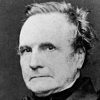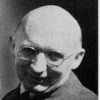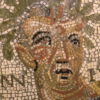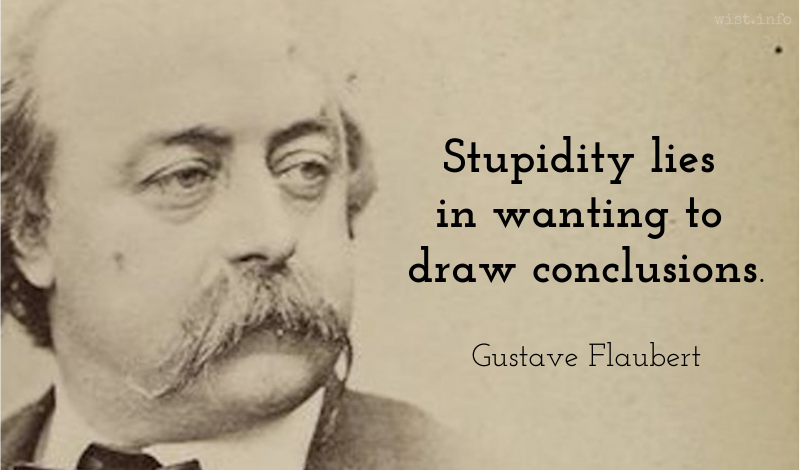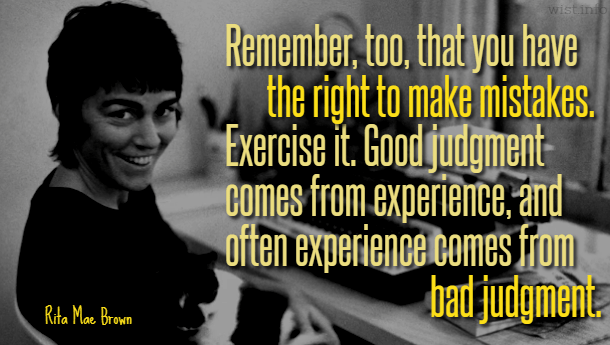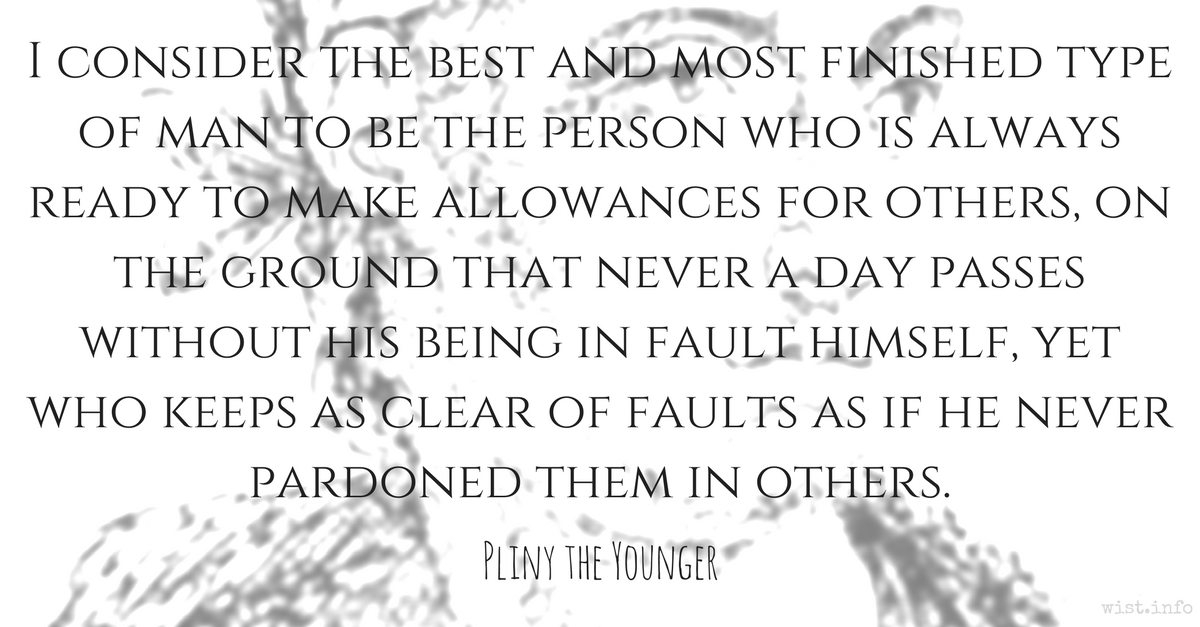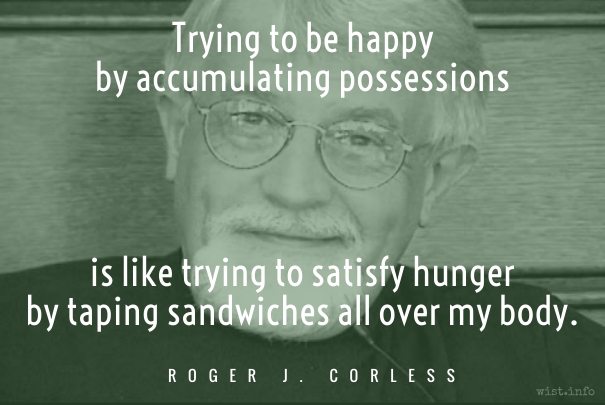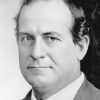It is difficult to pronounce on the opinion of the ministers of our Church as a body: one portion of them, by far the least informed, protests against anything which can advance the honour and the interests of science, because, in their limited and mistaken view, science is adverse to religion. This is not the place to argue that great question. It is sufficient to remark, that the best-informed and most enlightened men of all creeds and pursuits, agree that truth can never damage truth, and that every truth is allied indissolubly by chains more or less circuitous with all other truths; whilst error, at every step we make in its diffusion, becomes not only wider apart and more discordant from all truths, but has also the additional chance of destruction from all rival errors.
Charles Babbage (1791-1871) English mathematician, computer pioneer, philosopher
The Exposition of 1851: Views Of The Industry, The Science, and the Government Of England, ch. 17 (1851)
(Source)
Quotations about:
error
Note not all quotations have been tagged, so Search may find additional quotes on this topic.
Nor let it be feared that erroneous deductions may be made from such recorded facts: the errors which arise from the absence of facts are far more numerous and more durable than those which result from unsound reasoning respecting true data.
Charles Babbage (1791-1871) English mathematician, computer pioneer, philosopher
On the Economy of Machinery and Manufactures, ch. 7 (1832)
(Source)
Sometimes paraphrased, "Errors using inadequate data are much less than those using no data at all."
But when you frequent places of public worship, as I would have you go to all the different ones you meet with, remember that, however erroneous, they are none of them objects of laughter and ridicule. Honest error is to be pitied, not ridiculed. The object of all the public worships in the world is the same; it is that great eternal Being who created everything. The different manners of worship are by no means subjects of ridicule. Each sect thinks its own the best; and I know no infallible judge, in this world, to decide which is the best.
Lord Chesterfield (1694-1773) English statesman, wit [Philip Dormer Stanhope]
Letter to his son, #141 (16 Feb 1748)
(Source)
Errors and mistakes, however gross, in matters of opinion, if they are sincere, are to be pitied, but not punished nor laughed at. The blindness of the understanding is as much to be pitied as the blindness of the eye, and there is neither jest nor guilt in a man’s losing his way in either case. Charity bids us set him right if we can, by arguments and persuasions; but charity, at the same time, forbids, either to punish or ridicule his misfortune.
Lord Chesterfield (1694-1773) English statesman, wit [Philip Dormer Stanhope]
Letter to his son, #126 (21 Sep 1747)
(Source)
On religious tolerance.
Every man’s reason is, and must be, his guide; and I may as well expect that every man should be of my size and complexion, as that he should reason just as I do. Every man seeks for truth; but God only knows who has found it. It is, therefore, as unjust to persecute as it is absurd to ridicule people for those several opinions which they cannot help entertaining upon the conviction of their reason.
Lord Chesterfield (1694-1773) English statesman, wit [Philip Dormer Stanhope]
Letter to his son, #126 (21 Sep 1747)
(Source)
Speaking of religious beliefs.
No,
it’s no disgrace for a man, even a wise man,
to learn many things and not to be too rigid.
You’ve seen trees by a raging winter torrent,
how many sway with the flood and salvage every twig,
but not the stubborn — they’re ripped out, roots and all.[ἀλλ᾽ ἄνδρα, κεἴ τις ᾖ σοφός, τὸ μανθάνειν
πόλλ᾽, αἰσχρὸν οὐδὲν καὶ τὸ μὴ τείνειν ἄγαν.
ὁρᾷς παρὰ ῥείθροισι χειμάρροις ὅσα
δένδρων ὑπείκει, κλῶνας ὡς ἐκσῴζεται,
τὰ δ᾽ ἀντιτείνοντ᾽ αὐτόπρεμν᾽ ἀπόλλυται.]Sophocles (496-406 BC) Greek tragic playwright
Antigone, l. 710ff [Haemon] (441 BC) [tr. Fagles (1982), l. 794ff]
(Source)
Ancient Greek. Alternate translations:
But that a man, how wise soe'er, should learn
In many things and slack his stubborn will,
This is no derogation. When the streams
Are swollen by mountain-torrents, thou hast seen
That all the trees wich bend them to the flood
Preserve their branches from the angry current,
While those which stem it perish root and branch.
[tr. Donaldson (1848)]
The wisest man will let himself be swayed
By others' wisdom and relax in time.
See how the trees beside a stream in flood
Save, if they yield to force, each spray unharmed,
But by resisting perish root and branch.
[tr. Campbell (1873)]
'Tis no disgrace even to the wise to learn
And lend an ear to reason. You may see
The plant that yields where torrent waters flow
Saves every little twig, when the stout tree
Is torn away and dies.
[tr. Storr (1859)]
No, even when a man is wise, it brings him no shame to learn many things, and not to be too rigid. You see how the trees that stand beside the torrential streams created by a winter storm yield to it and save their branches, while the stiff and rigid perish root and all?
[tr. Jebb (1891)]
True wisdom will be ever glad to learn,
And not too fond of power. Observe the trees,
That bend to wintry torrents, how their boughs
Unhurt remain; while those that brave the storm,
Uprooted torn, shall wither and decay.
[tr. Werner (1892)]
No, though a man be wise, 'tis no shame for him to learn many things, and to bend in season. Seest thou, beside the wintry torrent's course, how the trees that yield to it save every twig, while the stiff-necked perish root and branch?
[tr. Jebb (1917)]
It is not reason never to yield to reason!
In flood time you can see how some trees bend,
And because they bend, even their twigs are safe,
While stubborn trees are torn up, roots and all
[tr. Fitts/Fitzgerald (1939), l. 570ff]
It is no weakness for the wisest man
To learn when he is wrong, know when to yield.
So, on the margin of a flooded river
Trees bending to the torrent live unbroken,
While those that strain against it are snapped off.
[tr. Watling (1947), l. 608ff]
A man, though wise, should never be ashamed
of learning more, and must unbend his mind.
Have you not seen the trees beside the torrent,
the ones that bend them saving every leaf,
while the resistant perish root and branch?
[tr. Wyckoff (1954)]
There's no disgrace, even if one is wise,
In learning more, and knowing when to yield.
See how the trees that grow beside a torrent
Preserve their branches, if they bend; the others,
Those that resist, are torn out, root and branch.
[tr. Kitto (1962)]
But a wise man can learn a lot and never be ashamed;
He knows he does not have to be rigid and close-hauled.
You've seen trees tossed by a torrent in a flash flood:
If they bend, they're saved, and every twig survives,
But if they stiffen up, they're washed out from the roots.
[tr. Woodruff (2001)]
But for a man, even if he is wise, to go on learning
many things and not to be drawn too taut is no shame.
You see how along streams swollen from winter floods
some trees yield and save their twigs,
but others resist and perish, root and branch.
[tr. Tyrell/Bennett (2002)]
On the contrary, it is no shame for even a wise man to continue learning. Nor should a man be obstinate. One can see the trees on the heavy river-banks. Those that bend with the rushing current, survive, whereas those bent against it are torn, roots and all.
[tr. Theodoridis (2004)]
For any man,
even if he’s wise, there’s nothing shameful
in learning many things, staying flexible.
You notice how in winter floods the trees
which bend before the storm preserve their twigs.
The ones who stand against it are destroyed,
root and branch.
[tr. Johnston (2005), l. 804ff]
No, it's no disgrace for a man, even a wise man, to learn many things and not to be too rigid. You see how, in the winter storms, the trees yield that save even their twigs, but those who oppose it are destroyed root and branch.
[tr. Thomas (2005)]
Genius is what you do with the mistakes.
Michael Moriarty (b. 1941) American-Canadian actor, musician
In Amy Wallace, “The Survivor,” New Yorker (26 Jan 2004)
(Source)
Referring to his work with film producer Larry Cohen. Full quote: "It was skin-of-your-teeth filmmaking. Larry tends occasionally not to look ahead. But genius is what you do with the mistakes, and nobody was better with mistakes than Larry Cohen."
What inconceivable madness! For it is not enough to call an opinion “foolishness” when it is utterly devoid of reason.
[O delirationem incredibilem! non enim omnis error stultitia dicenda est.]
Marcus Tullius Cicero (106-43 BC) Roman orator, statesman, philosopher
De Divinatione [On Divination], Book 2, ch. 43 (2.43) / sec. 90 (44 BC) [tr. Falconer (1923)]
(Source)
A bad cause seldom fails to betray itself.
James Madison (1751-1836) American statesman, political theorist, US President (1809-17)
The Federalist Papers, #41 (19 Jan 1788)
(Source)
The pain others give passes away in their later kindness, but that of our own blunders, especially when they hurt our vanity, never passes away.
William Butler Yeats (1865-1939) Irish poet and dramatist
Journal entry #105 (18 Mar 1909)
(Source)
See also "Vacillation."
Which is it? Is man one of God’s blunders? Or is God one of man’s blunders?
[Wie? ist der Mensch nur ein Fehlgriff Gottes? Oder Gott nur ein Fehlgriff des Menschen?]
Friedrich Nietzsche (1844-1900) German philosopher and poet
Twilight of the Idols [Die Götzen-Dämmerung], “Apophthegms and Darts [Sprüche und Pfeile]” #7 (1889)
Alt. trans.:
- "How is it? Is man only a mistake of God? Or God only a mistake of man? --" [tr. Common (1896)]
- "What? Is man just one of God's mistakes? Or is God just one of man's? --" [tr. Large (1998),"Maxims and Barbs"]
- "What? Is man just God's mistake? Or is God just man's mistake?" [tr. Norman (2005), "Arrows and Epigrams"]
- "What? Is man merely a mistake of God's? Or God merely a mistake of man's?" [tr. Hollingdale (1968)]
- "Which is it? Is man only a blunder of God? Or is God only a blunder of man?" [tr. Ludovici (1911), "Maxims and Missiles"]
From such Considerations as these it follows, that I ought never to be angry with any one for differing in Judgment from me. For how know I but the Point in dispute between us, is one of those Errors that I have embrac’d as Truth. If I am in the Wrong, I should not be displeas’d that another is in the Right. If I am in the Right, ’tis my Happiness; and I should rather pity than blame him who is unfortunately in the Wrong.
Benjamin Franklin (1706-1790) American statesman, scientist, philosopher, aphorist
Letter to Josiah Franklin (Apr 1738) [draft]
(Source)
His father.
We sometimes find ourselves changing our minds without any resistance or heavy emotion, but if we are told that we are wrong we resent the imputation and harden our hearts. We are incredibly heedless in the formation of our beliefs, but find ourselves filled with an illicit passion for them when anyone proposes to rob us of their companionship. It is obviously not the ideas themselves that are dear to us, but our self-esteem which is threatened.
James Harvey Robinson (1863-1936) American historian and educator
The Mind in the Making, ch. 4 “Rationalizing” (1921)
(Source)
But since it is no more in a Man’s Power to think than to look like another, methinks all that should be expected from me is to keep my Mind open to Conviction, to hear patiently and examine attentively whatever is offered me for that end; and if after all I continue in the same Errors, I believe your usual Charity will induce you rather to pity and excuse than blame me.
Benjamin Franklin (1706-1790) American statesman, scientist, philosopher, aphorist
Letter to Josiah and Abiah Franklin (13 Apr 1738)
(Source)
His parents.
Our blunders mostly come from letting our wishes interpret our duties, or hide from us plain indications of unwelcome tasks.
Alexander Maclaren (1826-1910) Scots-English minister, homilist
The Secret of Power: And Other Sermons, Sermon 15 “Moses and Hobab” (1902)
(Source)
You both seem concern’d lest I have imbib’d some erroneous Opinions. Doubtless I have my Share, and when the natural Weakness and Imperfection of Human Understanding is considered, with the unavoidable Influences of Education, Custom, Books and Company, upon our Ways of thinking, I imagine a Man must have a good deal of Vanity who believes, and a good deal of Boldness who affirms, that all the Doctrines he holds, are true; and all he rejects, are false. And perhaps the same may be justly said of every Sect, Church and Society of men when they assume to themselves that Infallibility which they deny to the Popes and Councils. I think Opinions should be judg’d of by their Influences and Effects; and if a Man holds none that tend to make him less Virtuous or more vicious, it may be concluded he holds none that are dangerous; which I hope is the Case with me.
Benjamin Franklin (1706-1790) American statesman, scientist, philosopher, aphorist
Letter to Josiah and Abiah Franklin (13 Apr 1738)
(Source)
His parents.
DEXTER: I’d rather do something and make a mistake, than be frightened into doing nothing. That’s the problem back home. Folks have been conned into thinking they can’t change the world. Have to accept what is. I’ll tell you something, my friends, the world is changing every day. The only question is, who’s doing it?
J. Michael (Joe) Straczynski (b. 1954) American screenwriter, producer, author [a/k/a "JMS"]
Babylon 5, 3×20 “And the Rock Cried Out, No Hiding Place” (14 Oct 1996)
See Straczynski.
It says in the Constitution that we all have a guaranteed right to make fools of ourselves. I have taken every chance to reap the rewards of that guarantee. If forced to action, I mean to fight to defend that right, which includes the right to be wrong, queer, or just kooky. And how can I defend that unless I defend those kooks and queers who think (wrongly, of course) that I am kooky and queer?
John Ciardi (1916-1986) American poet, writer, critic
In Vince Clemente, “‘A Man Is What He Does With His Attention’: A Conversation with John Ciardi,” Poesis, Vol. 7 #2 (1986)
(Source)
His view of war — and he had seen a great deal of it — was that a general made as many blunders as he fought battles, but, by the grace of the gods, the opposing generals’ blunders were sometimes worse.
Aubrey Menen (1912-1989) British writer, novelist, satirist, theatre critic
A Conspiracy of Women (1966)
(Source)
See Tartakower.
For nothing stands out so conspicuously, or remains so firmly fixed in the memory, as something in which you have blundered.
[Nihil est enim tam insigne, nec tam ad diuturnitatem memoriae stabile, quam id, in quo aliquid offenderis.]
Marcus Tullius Cicero (106-43 BC) Roman orator, statesman, philosopher
De Oratore [On the Orator, On Oratory], Book 1, ch. 28 (1.28) / sec. 129 (55 BC) [tr. Sutton/Rackham (1940)]
(Source)
(Source (Latin)). Alternate translations:
For nothing makes so remarkable, so deep an impression upon the memory as a miscarriage.
[tr. Guthrie (1755)]
For nothing makes so remarkable, so deep an impression upon the memory as a defect.
[Source (1808)]
Nothing, indeed, is so much noticed, or makes an impression of such lasting continuance on the memory, as that in which you give any sort of offense.
[tr. Watson (1860)]
For nothing so immediately attracts attention, or clings so tenaciously to the memory, as any defect.
[tr. Calvert (1870)]
For nothing, we know, strikes us so forcibly or makes such an indelible impression on the memory as that which somehow offends our taste.
[tr. Moor (1892)]
Nothing attracts so much attention, or retains such a hold upon men's memories, as the occasion when you have made a mistake.
[ed. Harbottle (1906)]
For nothing is so conspicuous or so indelibly imprinted on the memory as something that annoys you in any way.
[tr. May/Wisse (2001)]
A successful career has been full of great blunders.
Charles Buxton (1823-1871) English brewer, philanthropist, writer, politician
Notes of Thought, #482 (1873)
(Source)
For there is no gardening without humility, an assiduous willingness to learn, and a cheerful readiness to confess you were mistaken. Nature is continually sending even its oldest scholars to the bottom of the class for some egregious blunder. But, by the due exercise of patience and diligence, they may work their way to the top again.
Alfred Austin (1835-1913) English poet, UK Poet Laureate (1986-1913)
The Garden That I Love, “April 30th” (1894)
(Source)
Brooding over blunders is the biggest blunder.
Muhammad Ali (1942-2016) American boxer, activist [b. Cassius Clay]
“What I’ve Learned,” Esquire (Jan 2004)
(Source)
No matter what the belief, if it had modestly said, “This is our best thought, go on, think farther!” then we could have smoothly outgrown our early errors and long since have developed a religion such as would have kept pace with an advancing world. But we were made to believe and not allowed to think. We were told to obey, rather than to experiment and investigate.
When people reject a truth or an untruth it is not because it is a truth or an untruth that they reject it,
No, if it isn’t in accord with their beliefs in the first place they simply say, “Nothing doing,” and refuse to inspect it.
Likewise when they embrace a truth or an untruth it is not for either its truth or its mendacity,
But simply because they have believed it all along and therefore regard the embrace as a tribute to their own fair-mindedness and sagacity.
Ogden Nash (1902-1971) American poet
“Seeing Eye to Eye is Believing,” Good Intentions (1942)
(Source)
It takes a lot of things to prove you are smart, but only one thing to prove you are ignorant.
This is the Achilles heel of quotation collections: An initial error in one will be repeated so often by others that over time it gains authority through repetition alone.
Ralph Keyes (b. 1945) American author.
“Nice Guys Finish Seventh”: False Phrases, Spurious Sayings, and Familiar Misquotations, ch. 13 (1992)
(Source)
Many journalists have fallen for the conspiracy theory of government. I do assure you that they would produce more accurate work if they adhered to the cock-up theory.
Bernard Ingham (b. 1932) British journalist, civil servant, press secretary
Quoted in The Observer (17 Mar 1985)
Often paraphrased, "Cock-up before conspiracy." Cf. Hanlon.
We are never so certain of our knowledge as when we’re dead wrong.
Adair Lara (b. 1952) American writer, columnist, teacher
“A Lot of Knowledge Is Dangerous, Too,” San Francisco Chronicle (9 Oct 1997)
(Source)
That seems to point up a significant difference between Europeans and Americans:
A European says: I can’t understand this, what’s wrong with me?
An American says: I can’t understand this, what’s wrong with him?
Your minds that once did stand erect and strong,
What madness swerves them from their wonted course?
[Quo vobis mentes, rectae quae stare solebant
antehac, dementis sese flexere viai?]Ennius (239-169 BC) Roman poet, writer [Quintus Ennius]
Annals, Book 6, frag. 11 [tr. Falconer (1923)]
(Source)
Setting the words of Appius Claudius to verse, when Appius in his old age berated the Senate for considering peace and alliance with King Pyrrhus of Epirus, who had defeated them (in a "Pyrhhic victory") at Heraclea (280 BC). Fragment recorded in Cicero, De Senectute, ch. 6 / sec. 16 (4.16) (44 BC).
(Source (Latin)). Alternate translations:
Why seid Appius haue ye inclyned and revaled youre couragious hertys whiche til nowe were accustumyd to be ferme and stidfast. Be ye madd or for lak of discressyon agree ye for to condescend and desyre ye to make alliance and peas with kyng Pirrus bycause that he putteth in strength for to putt you downe and in subjection and wolde destroye yowe?
[tr. Worcester/Worcester/Scrope (1481)]
Why do your wits
And senses so rave?
What foolish conceit
Doth encumber your brain?
Where be the ripe judgments,
Which wont you were to have,
To agree to your country's
Ruin most plain?
[tr. Newton (1569)]
Whether now bend your minds, a headlong fall to bring,
Which heretofore had wont to stand, as straight as any thing.
[tr. Austin (1648)]
Whither now do you bend your Thoughts
Which, heretofore, were firm and resolute,
What! madly on your Ruin. ? --
[tr. J. D. (1744)]
What Frenzy now has your wild Minds possest?
You, who were first with sagest Counsels blest,
Your selves on sure Destruction thus to throw!
[tr. Logan (1744)]
Shall folly now that honoured Council sway,
Where sacred wisdom wont to point the way!
[tr. Melmoth (1773)]
Ah! wither have your minds demented turned themselves, wich heretofore were wont to stand erect?
[Cornish Bros. ed. (1847)]
Whither have your minds, which used to stand upright before, in folly turned away?
[tr. Edmonds (1874)]
Wont to stand firm, upon what devious way
Demented rush ye now?
[tr. Peabody (1884)]
Whither have swerved the souls so firm of yore?
Is sense grown senseless? Can feet stand no more?
[tr. Shuckburgh (1895)]
Where are the minds that used to stand serene,
where is the bravery that once has been?
[tr. Allison (1916)]
What is this madness that has turned your minds, until now firm and strong, from their course?
[tr. Grant (1960, 1971 ed.)]
Where are your minds? They always stood up straight till now! Are you mad? Where did you miss the road?
[tr. Copley (1967)]
Up until now your minds were straight and firm.
What bends them now onto this foolish path?
[tr. Cobbold (2012)]
How on earth could your mind
Once upright and dignified
Take a downturn and backslide?
[tr. Bozzi (2015)]
What madness has turned your minds, once firm and strong, from their course?
[tr. Freeman (2016)]
Stupidity lies in wanting to draw conclusions.
[L’ineptie consiste à vouloir conclure. […] Oui, la bêtise consiste à vouloir conclure.]
Gustave Flaubert (1821-1880) French writer, novelist
Letter to Louis Bouilhet (4 Sep 1850)
(Source)
The phrase is used twice in the letter. The initial phrase is usually translated to "foolishness" or "folly," the second to "stupidity."
Creativity is allowing oneself to make mistakes. Art is knowing which ones to keep.
Scott Adams (b. 1957) American cartoonist
Stick to Drawing Comics, Monkey Brain, Appendix B (2007)
(Source)
Success don’t konsist in never making blunders, but in never making the same one the seckond time.
[Success doesn’t consist in never making blunders, but in never making the same one the second time.]
An opinion, right or wrong, can never constitute a moral offense, nor be in itself a moral obligation. It may be mistaken; it may involve an absurdity, or a contradiction. It is a truth; or it is an error: it can never be a crime or a virtue.
Remember, too, that you have the right to make mistakes. Exercise it. Good judgment comes from experience, and often experience comes from bad judgment.
Rita Mae Brown (b. 1944) American author, playwright
Starting from Scratch, Part 4 (1988)
(Source)
Brown popularized the phrase, but it had been expressed before. More information: Good Judgment Depends Mostly on Experience and Experience Usually Comes from Poor Judgment – Quote Investigator.
HAL9000: The 9000 series is the most reliable computer ever made. No 9000 computer has ever made a mistake or distorted information. We are all, by any practical definition of the words, foolproof and incapable of error.
The proper method for hastening the decay of error is not by brute force, or by regulation which is one of the classes of force, to endeavor to reduce men to intellectual uniformity, but on the contrary by teaching every man to think for himself.
William Godwin (1756-1836) English journalist, political philosopher, novelist
Enquiry Concerning Political Justice, Vol. 2, bk. 8, ch. 6 “Of the Enjoyment of Liberty” (1793)
(Source)
Man has no greater enemy than himself. I have acted contrary to my sentiments and inclination; throughout our whole lives we do what we never intended, and what we proposed to do, we leave undone.
Francesco Petrarca (1304-1374) Italian scholar and poet [a.k.a. Petrarch]
(Attributed)
(Source)
Quoted in Johann Georg Ritter von Zimmermann, An Examination of the Advantages of Solitude and of Its Operations, ch. 5 (1783) [tr. F.S. (1808)].
For my own part, I consider the best and most finished type of man to be the person who is always ready to make allowances for others, on the ground that never a day passes without his being in fault himself, yet who keeps as clear of faults as if he never pardoned them in others.
[Atque ego optimum et emendatissimum existimo, qui ceteris ita ignoscit, tamquam ipse cotidie peccet, ita peccatis abstinet tamquam nemini ignoscat.]
Pliny the Younger (c. 61-c. 113) Roman politician, writer [Gaius Plinius Caecilius Secundus]
Epistles [Epistulae], Book 8, Letter 22 “To Geminus” [tr. J.B.Firth (1900)]
(Source)
Alt. trans.: "The highest of characters, in my estimation, is his, who is as ready to pardon the moral errors of mankind, as if he were every day guilty of some himself; and at the same time as cautious of committing a fault as if he never forgave one."
Though I’ve never understood how God could expect his creatures to pick the one true religion by faith — it strikes me as a sloppy way to run a universe.
Robert A. Heinlein (1907-1988) American writer
Stranger in a Strange Land, ch. 13 [Jubal] (1961)
(Source)
In the "original uncut" edition (1960, published 1991), this is given as: "I've never been able to understand 'faith' myself, nor to see how a just God could expect his creatures to pick the one true religion out of an infinitude of false ones -- by faith alone. It strikes me as a sloppy way to run an organization, whether a universe or a smaller one."
Nature is more subtle, more deeply intertwined and more strangely integrated than any of our pictures of her — than any of our errors. It is not merely that our pictures are not full enough; each of our pictures in the end turns out to be so basically mistaken that the marvel is that it worked at all.
We make ourselves miserable by first closing ourselves off from reality and then collecting this and that in an attempt to make ourselves happy by possessing happiness. But happiness is not something I have, it is something I myself want to be. Trying to be happy by accumulating possessions is like trying to satisfy hunger by taping sandwiches all over my body.
The humblest citizen of all the land, when clad in the armor of a righteous cause, is stronger than all the hosts of Error.
William Jennings Bryan (1860–1925) American lawyer, statesman, politician, orator
Speech, National Democratic Convention, Chicago (Jul 1896)
(Source)
If you live long enough, you’ll make mistakes. But if you learn from them, you’ll be a better person. It’s how you handle adversity, not how it affects you. The main thing is never quit, never quit, never quit.
Often the fear of one evil leads us into a worse.
[Souvent la peur d’un mal nous conduit dans un pire.]
Nicolas Boileau-Despréaux (1636-1711) French poet and critic
The Art of Poetry [L’Art Poétique], Canto 1, l. 64 (1674)
(Source)
(Source (French)).
Though this sounds like a profound philosophical comment, in reality it refers to writers overcompensating for problems in their work. Soame (1892) translates this and the following line thus:
A verse was weak, you turn it much too strong.
And grow obscure for fear you should be long.

